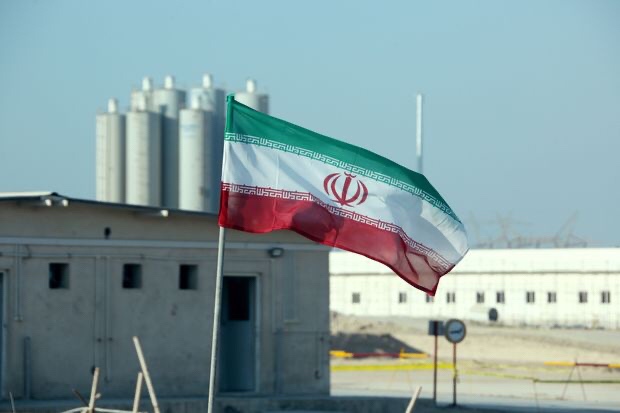Iran’s Bushehr nuclear power plant on Nov. 10, 2019.
PHOTO: ATTA KENARE/AGENCE FRANCE-PRESSE/GETTY IMAGES
The IAEA calls out Tehran for violating the non-proliferation treaty.
By The Editorial Board
June 22, 2020 7:05 pm ETThe media barely noticed, but the world on Friday called out Iran for blocking nuclear inspections unrelated to President Obama’s 2015 nuclear deal. This problem will continue no matter who is the American President in 2021.
Iran has been a party to the Treaty on the Non-Proliferation of Nuclear Weapons since 1970. As a signatory, the country has committed to use nuclear material and technology only for peaceful purposes—and to cooperate with inspectors from the International Atomic Energy Agency.
On Friday the IAEA’s board of governors called Iran out. The resolution noted that nearly yearlong discussions “to clarify Agency questions related to possible undeclared nuclear material and nuclear related activities in Iran have not led to progress.” It demanded that Tehran provide “prompt access to the locations specified by the Agency.”
Earlier this month an IAEA report criticized Iran for scrubbing possible former nuclear facilities. It further expressed concern about the location of a metal disk made of uranium and research in the early 2000s that used other undeclared nuclear material. Iran says the allegations are based on “fabricated” Israel intelligence. If that’s true, why not open up the sites and prove Jerusalem wrong?
“While everyone was staring at the JCPOA [the 2015 deal], new safeguards problems have arisen in a very different lane,” U.S. Assistant Secretary for International Security and Nonproliferation Christopher Ford noted. “It is the first time ever by any country anywhere that a government has rejected and refused to comply with its obligations under the IAEA’s Additional Protocol.”
France, Germany and the United Kingdom introduced the rebuke, which passed 25-2 with seven abstentions. The Western Europeans remain committed to the 2015 nuclear deal and have criticized Mr. Trump’s “maximum pressure” sanctions against Iran. But their role here shows a trans-Atlantic consensus around the nature of the Iranian regime, despite disagreements about how to contain it.
The same can’t be said for Russia or China, which opposed the resolution. This illustrates the degree to which the world’s three main expansionist authoritarian powers are uniting to frustrate global norms. Azerbaijan, India, Mongolia, Niger, Pakistan, South Africa and Thailand abstained. These nations have taken the indefensible position of not having a position against clear non-proliferation violations.
“The responsibility for creating tension in the relations between the Islamic Republic of Iran and the IAEA lies with the founders of this resolution,” an Iranian foreign ministry spokesman said, according to Iranian state media. “These countries must accept the consequences of this action.”
The IAEA has often given public cover to Iran’s noncompliance while privately pushing it to be more transparent. The agency’s shift is welcome and explains the threats from Tehran. The next step should be an IAEA referral to the United Nations Security Council, and U.S.-Europe cooperation on sanctions.
No comments:
Post a Comment